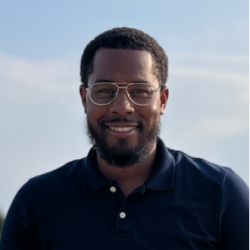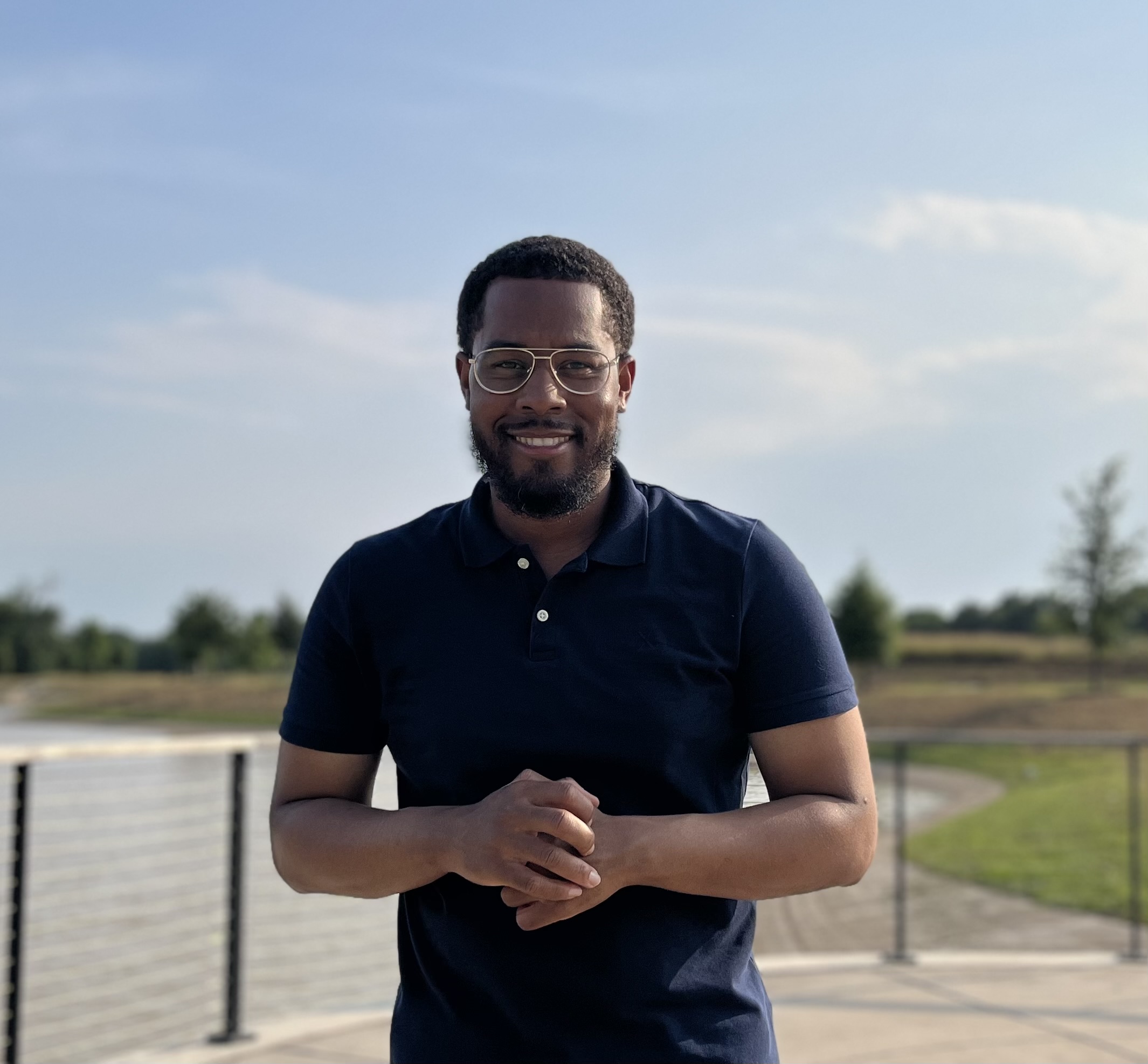
In this interview with Bryon Demerson, PBLWorks Lead National Faculty member and math specialist, he candidly shares his initial reluctance to approach math through PBL. In reality, PBL allowed Demerson to reconnect with his core educational purpose—preparing students for life beyond the classroom. Demerson emphasizes that PBL equips students for individual success and empowers them to lead meaningful change within their families and communities.
Bryon, tell me a little bit about yourself.
I’m currently Lead National Faculty at PBLWorks, specializing in Project Based Learning (PBL) in the math classroom. Before taking on this role, I spent two years as a math instructional coach within the middle school grades, all in Houston, Texas. Prior to that, I dedicated a decade of my career to teaching as an eighth-grade math educator. I had a lot of fun in the classroom! Math education wasn't my initial career choice, but fate led me to it, and I've never looked back. I recall telling myself that if I ever ventured into the field of education, there would be no turning back. And here I am.
What led you to education?
Growing up, I never had a clear idea of what I wanted to be, and that uncertainty went all the way back to my childhood. The question "What do you want to be when you grow up?" was always a challenge for me, especially as many African American kids like me often dream of becoming athletes. But I knew that wasn’t going to happen for me. I went to college not knowing what I wanted to do, changing my major from pharmacy to engineering and eventually landing in education.
In making this choice, my goal became to motivate and inspire students, particularly those like me who felt unmotivated or lacked inspiration. My journey led me to a Title I school with a predominantly low socioeconomic student population. It’s exactly where I had to be, and it allowed me to understand the power of now and how I could impact the future as an educator.
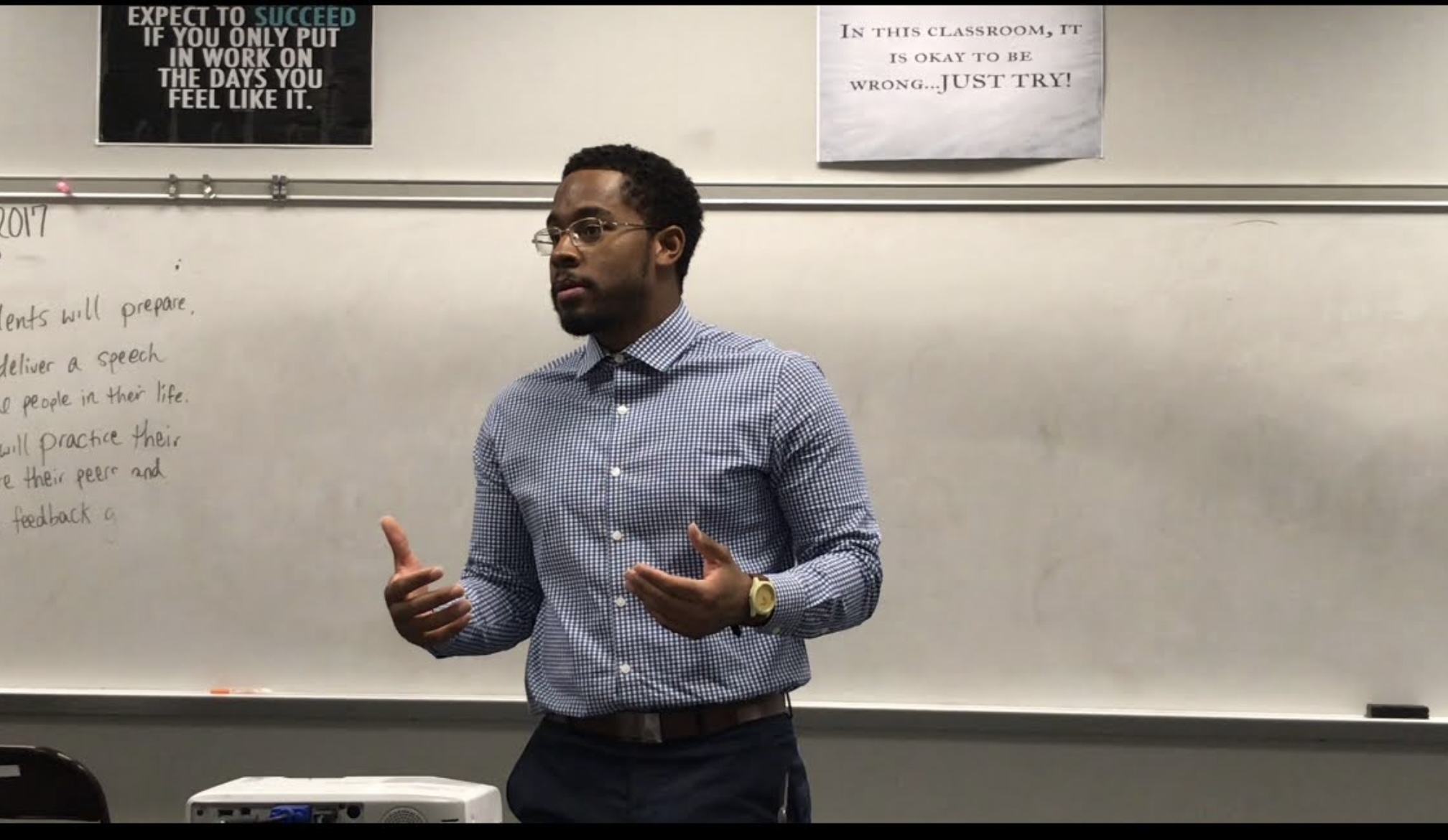
How did you understand and approach math instruction?
After earning my college degree, my aspiration was clear: to prepare kids for life beyond the classroom. Yet, the moment I began teaching, the reality was different. The school I initially worked at for a decade faced state regulations and performance issues, placing intense pressure on teachers to ensure student success in assessments.
My philosophy of preparing kids for life persisted, but the day-to-day reality meant helping students navigate tests, grasp specific content, and succeed in assessments. Many educators, including myself, embark on teaching with the noble goal of preparing students for life's broader challenges. However, the collective pressures of the educational system often shift the focus towards achieving success in standardized tests. It's not about blaming administrators or the state; it's a shared reality that can alter the initial aspirations of educators. The initial collective pressure made me focus on getting kids to learn to pass a test. And that was my reality.
Were your first couple of years more of a traditional approach to instruction?
Yeah, definitely a traditional approach. It was part by necessity, part job preservation. I was good at getting students to pass the test. So why change? If I'm good at something, I'm winning at this. A lot of my success and beating my chest was tied to my ability to prepare kids to pass the test. There's also a natural competitiveness that develops, not against other teachers, but against your own achievements.
So, how did this big shift happen for you?
It happened for several reasons, but I'll highlight a pivotal moment involving Breydi, an English Language Learner (ELL) student in her second year in the United States. She was navigating the complexities of learning a new language, culture, and educational system. In her first year, she didn’t pass the math exam. But the following year, she was determined to improve and overcome this particular challenge. She came in for extra support and worked hard. I was proud of her growth! She didn't pass the test again due to ONE question. I was still proud of her and her growth and I wanted to share that with her. But after learning that she had failed the test, she walked into my classroom in tears, feeling she had let me down. I began questioning the unintentional messages I might be conveying and realized something needed to change in my teaching approach.
During the same period, our campus was transitioning to emphasize STEM education. We developed a STEM program with an emphasis on a problem-based teaching approach. Addressing my colleagues, I made it clear that I wasn't interested in a superficial display. Despite my changed mindset, the challenge lay in navigating these paradigm shifts and translating them into actionable changes. Many teachers shared my initial reluctance, fearing blame if students didn't succeed after adopting these new approaches.
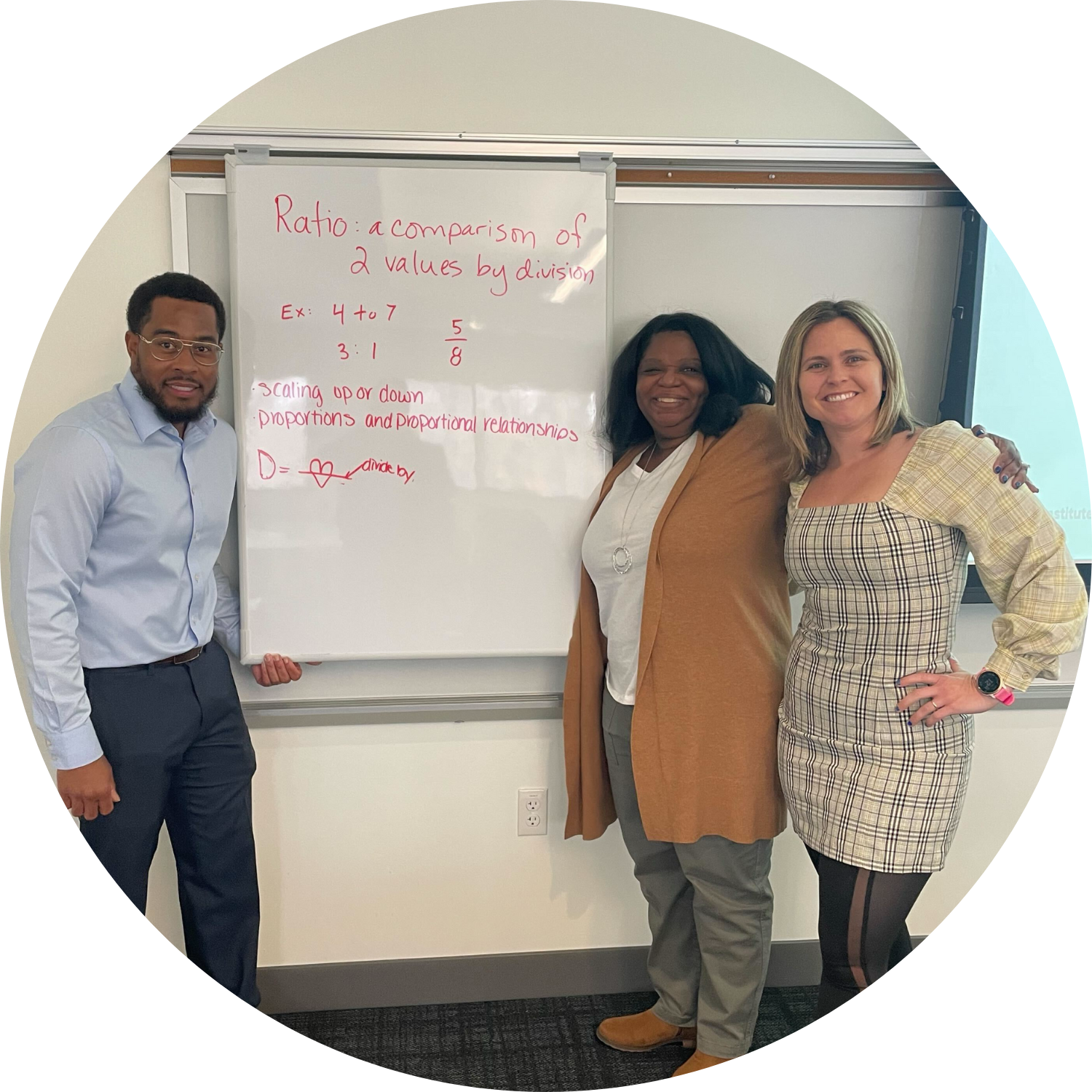
But once I did a project, and it wasn't even the most elaborate project, and I saw the kids' creative juices flow and the life skills they were developing in the process, I said, “Hold on. This is it!”
If the student I spoke about earlier had experienced learning this way she wouldn't have been crying in my arms, apologetic about not passing a test. And that's where the journey began. The following year, PBLWorks did a training at my school, and I’ll never forget it. I told my coach, “This is it right here! Found it. This is it. Now it's time to dance.”
My workshop facilitator was Eric White. When I first got hired at PBLWorks, I walked up to Eric at PBL World and told him, “You probably don't know me beyond the new hire. You came to my campus eight years ago, and not only did you change my life, you changed the lives of thousands of kids. You changed the lives of thousands of kids who came into contact with me because of the training that you did.”
How would you encourage math teachers who are hesitant about Project Based Learning? What is the biggest promise, and how will they still reach those core foundational concepts?
That is a great question, and I have a few answers:
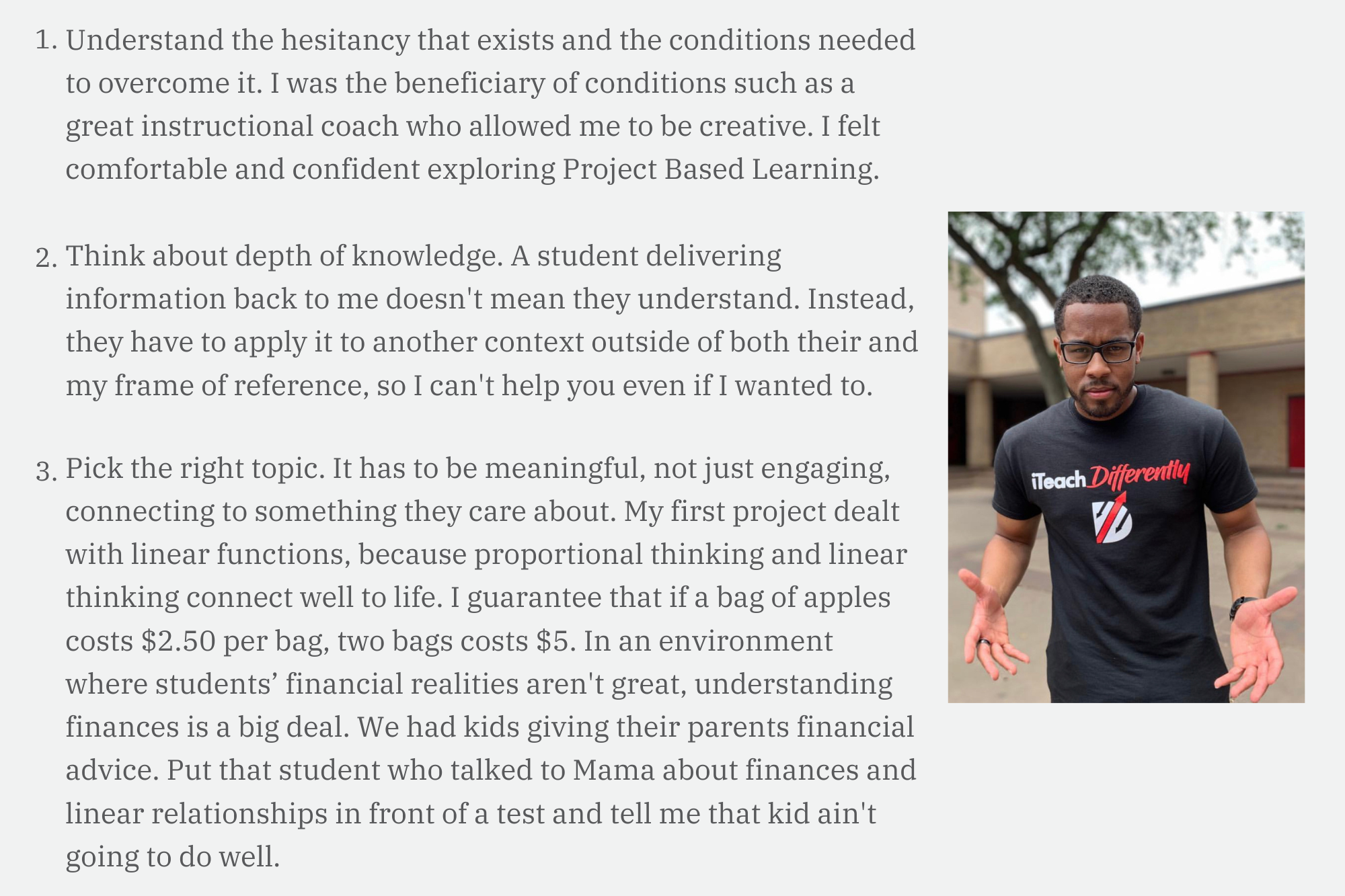
That’s how to turn those hesitations into wins.
Any closing thoughts? Is there anything else that you'd like to share or offer math teachers who will come across this article?
Yes. First, I don't even know you, but I'm proud of you and your choice to impact students. I'm thankful for that. That in and of itself needs to be paused, appreciated, honored, and nourished. Secondly, I understand the journey of a math teacher in America and the constant pressure you feel like you're under. I want to encourage you to keep pressing forward with that genuine desire to impact students. Thirdly, I'm going to ask you this question, “What are you doing for kids that they can do for themselves?” That was the first question that I had to ask myself. Once I started asking myself that question, I started figuring out how I could do less and have kids do more. But if I'm going to have them do more, how can I make it connect to who they are, their identities, and their interests? Once I asked myself these questions, everything changed for me.
My purpose is to excite other teachers to experience some of the same things that I was blessed to see kids create. I have watched kids' lives change so much, so I want to encourage you to do the same. And I genuinely love you and appreciate you for what you're doing!
We love stories from the field. Share your PBL journey with us by reaching out at
✉️ [email protected]. Let's inspire other educators together!

